Americans are satisfied with their lives – except for their salaries
See the full data and methodology.
Here’s what we know today from the Ipsos Consumer Tracker about: inflation and spending; media coverage of AI; tipping; and light, breezy topics like our satisfaction with our lives, homes and family. And of course we have a new installment of the Ipsos Care-o-Meter looking at Trump v. Biden (Hunter Biden, that is), Pat Sajak, Canadian wildfire smoke and more.
Here are some quick, miscellaneous findings before we get started:
- People who are working from home would like to stay that way, and if forced back 31% would look for another job. Only one in four would go back the required time and not either try to find a new job or negotiate for more time home.
- When forced to choose, 55% say they tip always or almost always vs. 45% who say they tip based on the quality of service.
- Two in three say that AI-generated work can contain biases or inaccuracies, a 10-point jump since the start of the year.
People are mostly satisfied with their lives, except for their incomes
Why we asked: We felt it was a good time to get existential about everything. But mostly, we were curious about workplace satisfaction and how it related to the other realms of our lives.
What we found: Overall, we’re pretty satisfied with things. High percentages of Americans say they are satisfied with their lives, homes, the work they do, their family and life in general. The only thing that fewer than three in four people agree on is that they are satisfied with their incomes. Satisfaction is higher among the affluent (incomes over $125,000) but even in that cohort, only 79% say they are satisfied. Perhaps that relates to the perception that prices keep rising.
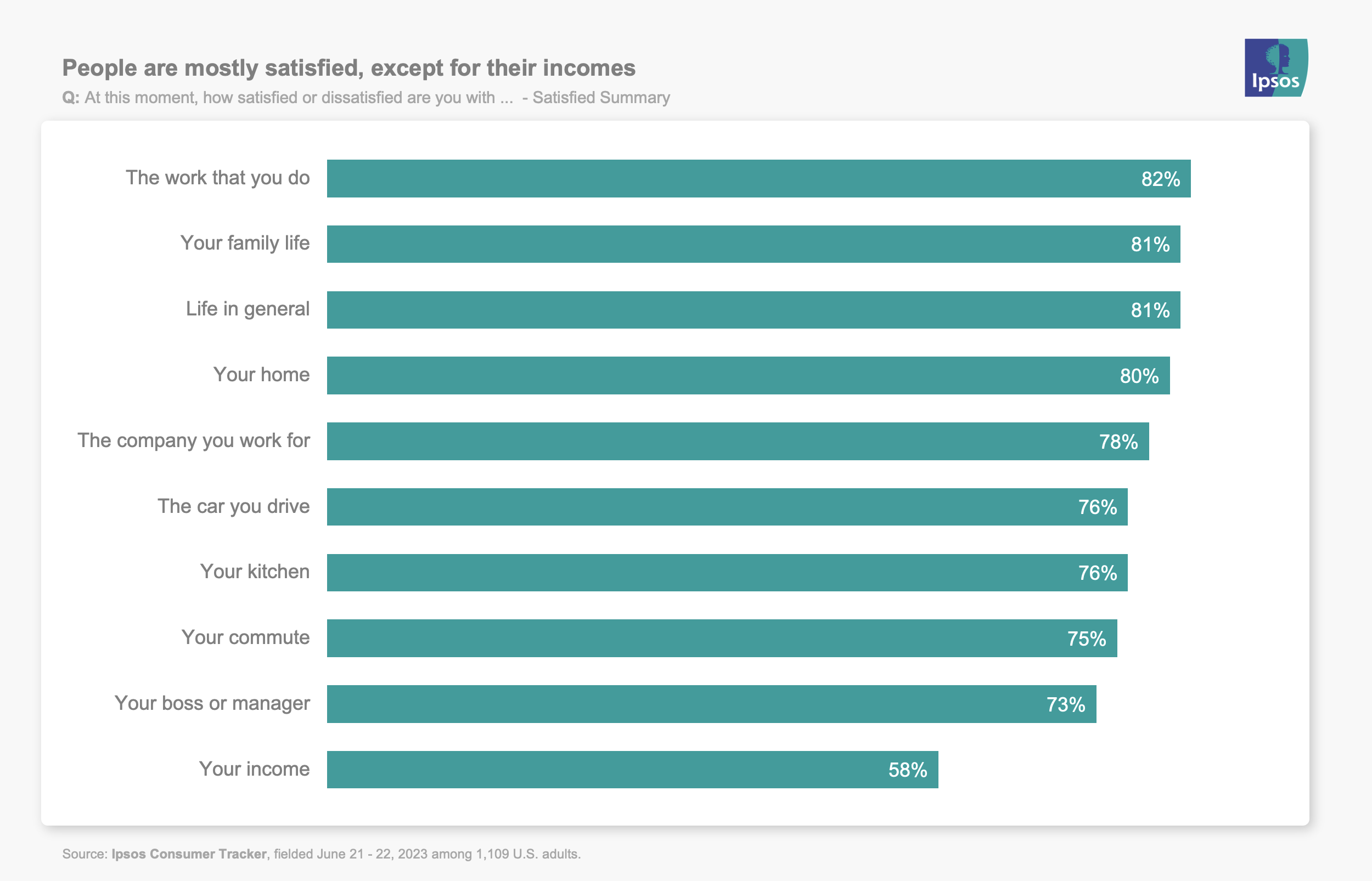
The Ipsos Care-o-Meter (Week of June 23, 2023)
Why we asked: How much do you know about a series of in-the-news events, and how much do you care about them? We explore the relationship between the two in each week’s Care-o-Meter. Check out the new Care-o-Meter page for the full analysis.
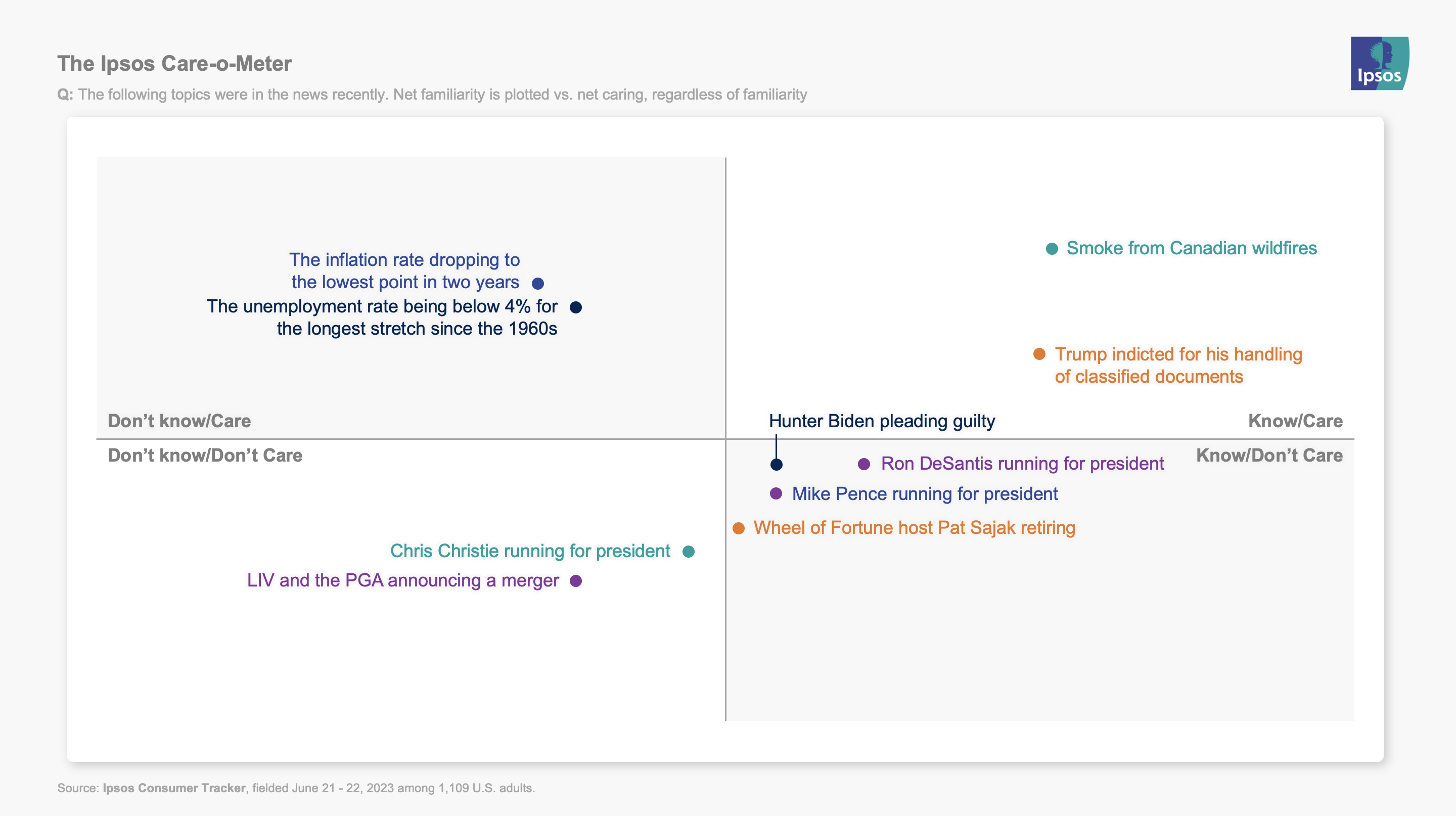
When it comes to politics in the workplace, we agree that we disagree
Why we asked: Employees are a fascinating stakeholder in the culture wars. We talk a lot about how brands and consumers interact with each other on sociopolitical issues and brand purpose. But where do we fit into this conversation as workers?
What we found: People across parties think that the companies they work for and their coworkers align with their personal values. But both parties are less sure about political alignment. Democrats were slightly less likely to say their coworkers align with their values, but slightly more likely to say coworkers aligned with their politics. I might be wrong, but I think there’s a universal truth hiding in plain sight here. That we, as a nation, share a lot of the same values. It’s just the expression of them that is polarized at the moment.
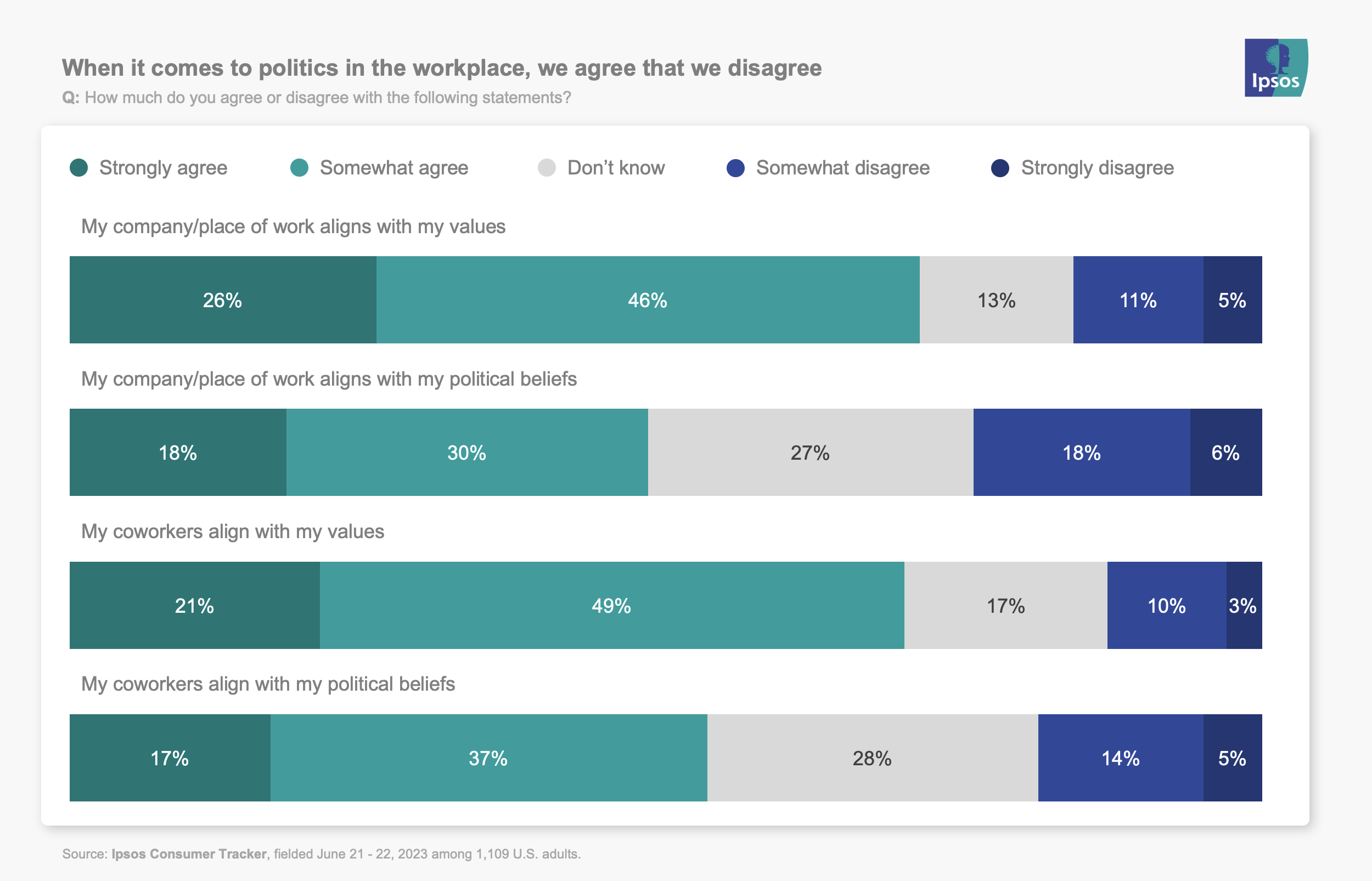
Inflation seems to be settling in for consumers
Why we asked: We hadn’t checked in on anticipated spending since last September.
What we found: When asked if people think their spending will increase, decrease or stay the same, people responded 2:1 that it will increase (31% vs 16%). That’s about the same number of people who said they expected spending to increase last time we asked, in September, but the number of people who expect a decrease has dropped, and there’s a bump in “will not change.” It’s not since the start of 2022 that we’ve seen a similar rate of people saying “will not change.” At that point, decrease was a little higher.
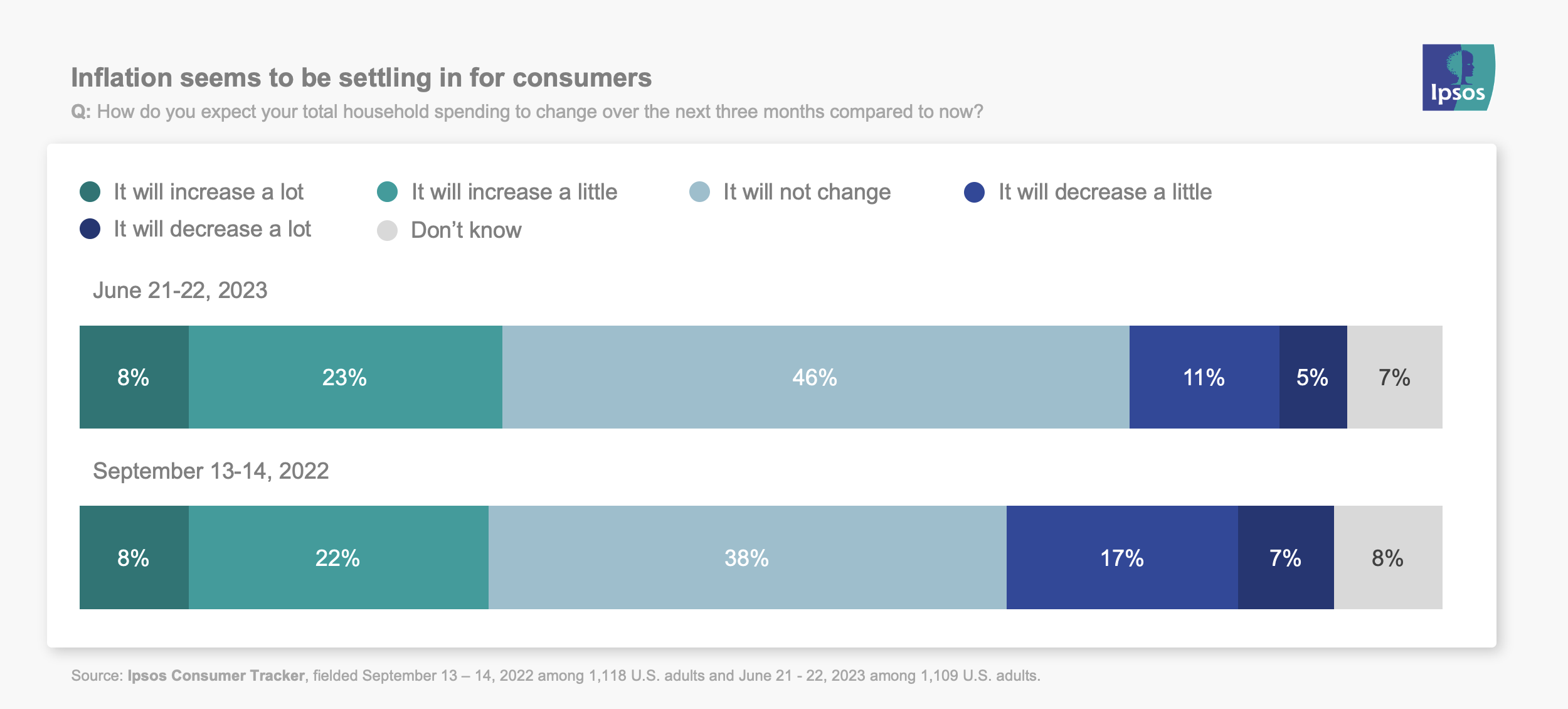
Most still think prices are going up, but fewer say so now than did last fall
Why we asked: As long as we’re talking about inflation, we trended another question from that September 2022 wave, asking about what goods people think are rising in price.
What we found: Overall, still-high proportions of the population think that prices are rising across a wide category of goods. That said, for most categories, fewer people said prices were going up than they did last fall.
FOR MORE ON INFLATION AND THE ECONOMY, SEE OUR NEW IPSOS TOP TOPIC PAGE.
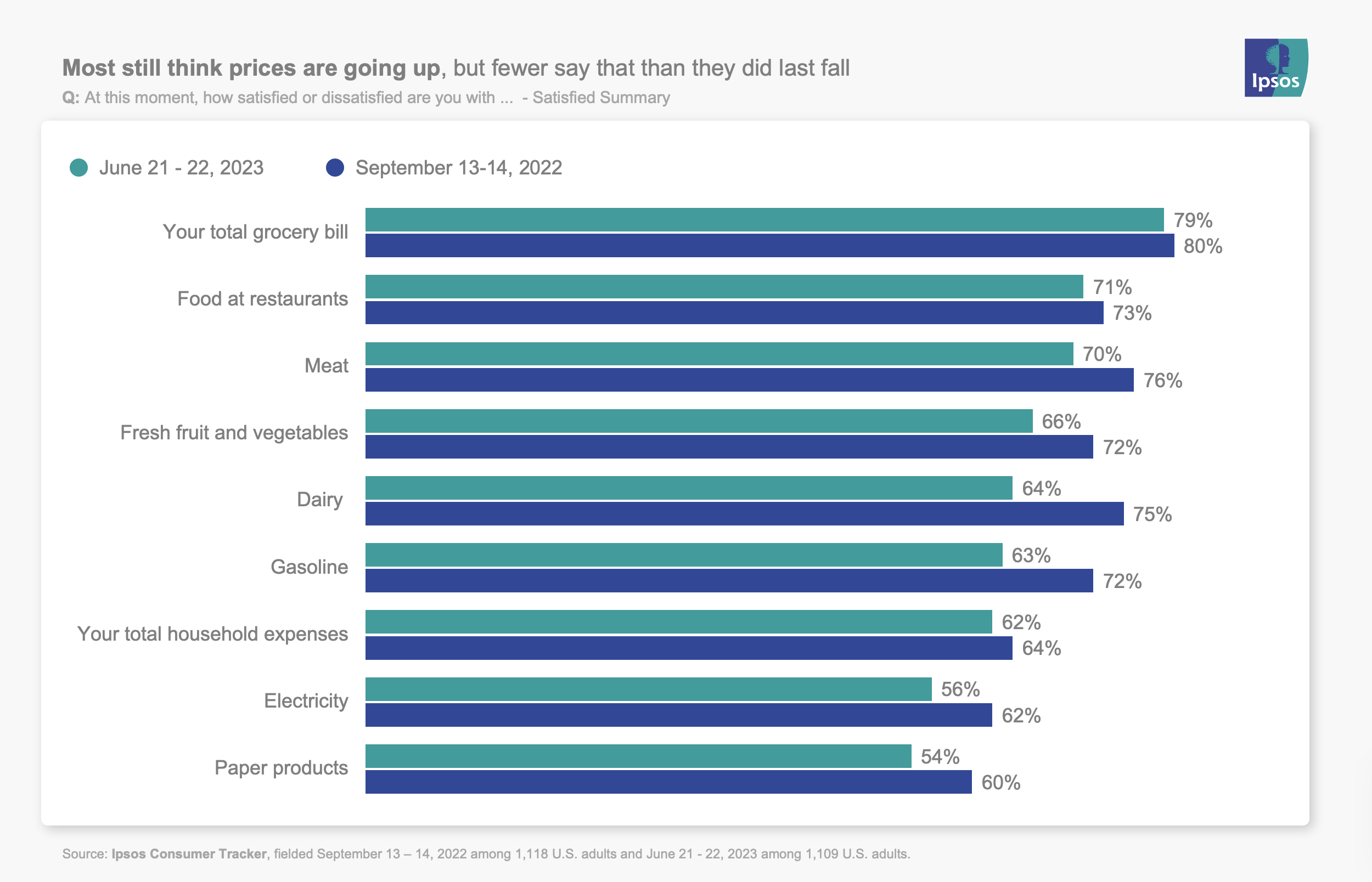
CNN/MSNBC watchers are more likely to see favorable coverage of AI
Why we asked: AI is in the news a lot. But is everyone seeing similar coverage?
What we found: Nope. When asked if most of the news coverage about AI is favorable, 53% of people who watch mostly CNN + MSNBC say yes, compared to 39% of those who primarily get news from Fox or other conservative channels. Interestingly, those splits are similar to the response to favorable portrayals in popular culture. Most people (77%) are seeing more AI coverage than they were six months ago (I’d raise my hand on that one) yet 60% would like to see more – at least if that coverage is talking about how to use AI and 56% are interested in learning how to use AI tools.
FOR MORE ON AI, SEE OUR NEW IPSOS TOP TOPIC PAGE.
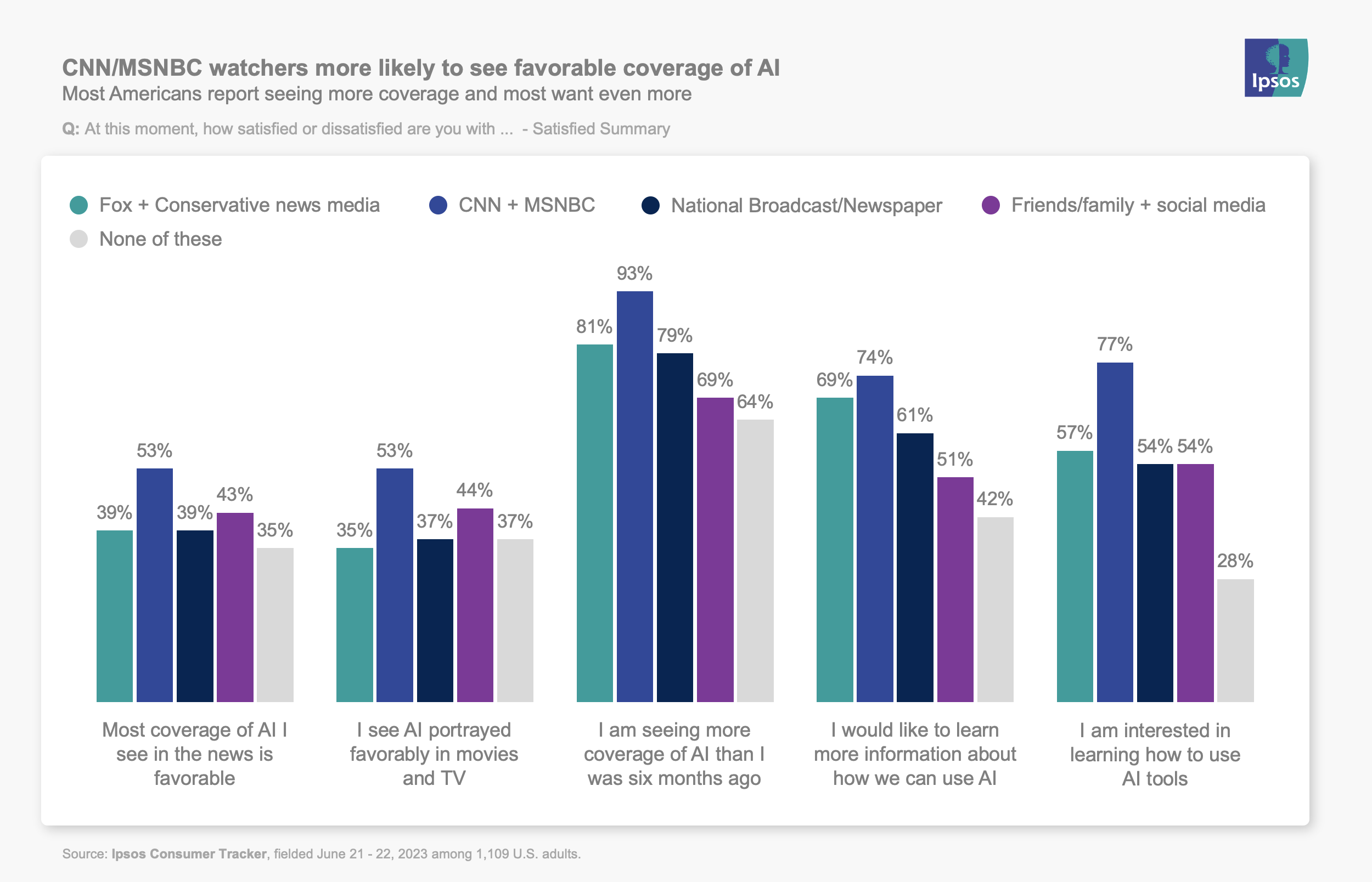
Signals
Here’s what we’re reading this week that has us thinking about the future.
- An incoming housing crisis (with insurance) (via CNN)
- Housing crisis (Texas) pt. 2 (via Bloomberg)
- Housing crisis (Phoenix) pt. 3 (via NPR)
- Obesity changes the brain irreversibly (via CNN)
For complete toplines for all waves, please see the full data and methodology.

